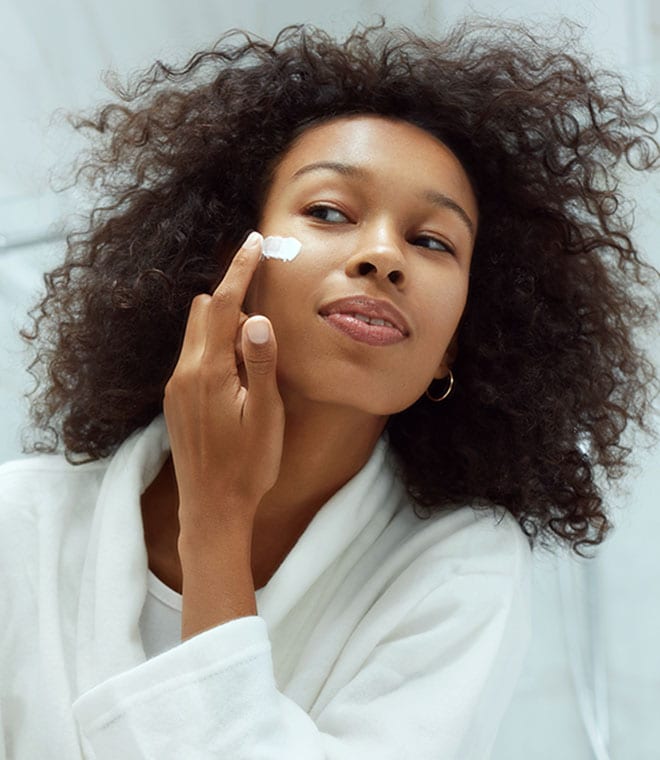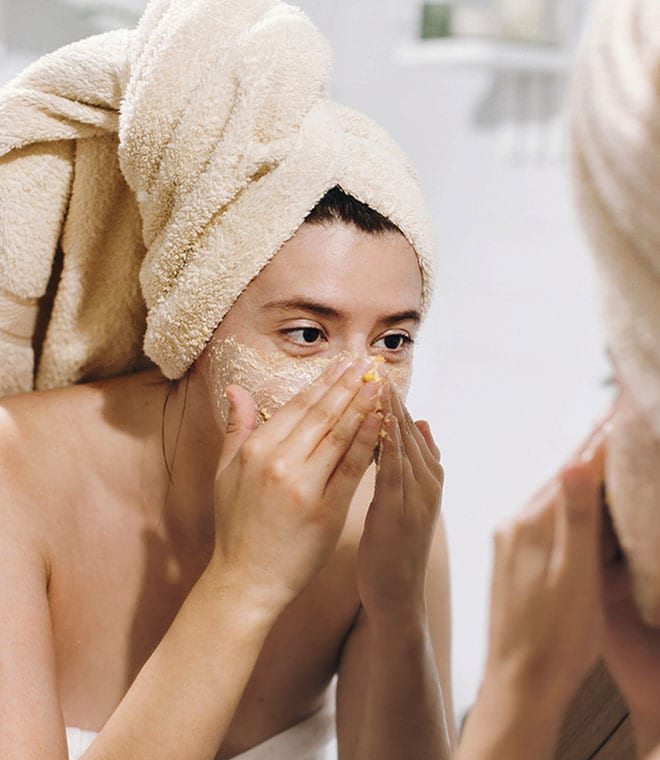Beauty
Sunscreen for sensitive and acne-prone skin: What to look for
By Anna H. Chacon, MD, Fellow of the American Academy of Dermatology Aug 27, 2024 • 4 min
No matter your skin type and tone, applying sunscreen daily is an important part of a healthy skin care routine. However, if you have sensitive or acne-prone skin, you’ll need to choose products carefully.
Choosing a sunscreen for acne-prone skin
Acne breakouts occur when pores become clogged with bacteria, dead skin cells, excess skin oil and debris. If you’re prone to acne, it’s important to choose sunscreen that won’t contribute to blockages and lead to breakouts.
Look for sunscreens labeled as “noncomedogenic.” These products feature special formulations that make them unlikely to clog the pores. Opt for lighter formulations, such as sprays and gels, rather than heavier creams and lotions, which usually contain more oil.
Acne treatments and sun sensitivity
Some topical products and oral medications for acne can cause sun sensitivity, making you more prone to sunburns. These include benzoyl peroxide, retinoids, retinol and isotretinoin.
If you’re at risk for photosensitivity due to your acne treatment, be extra cautious about sun protection. Wear clothing that covers as much of your skin as possible and apply sunscreen to all exposed areas 30 minutes before going outside. Ask your healthcare provider which SPF-level sunscreen you should choose for adequate protection.
Selecting a sunscreen for sensitive skin
If you have sensitive skin, carefully choosing your sunscreen can lower the likelihood of irritation. Many brands offer hypoallergenic sunscreens, but don’t automatically assume these products won’t trigger sensitivity.
The FDA doesn’t regulate the use of the term hypoallergenic, so there’s no way to know what criteria a manufacturer uses when selecting the term. Some brands do perform extensive allergy testing to ensure that their hypoallergenic sunscreens are less likely to cause hypersensitivity reactions; however, not all do.
Because the term hypoallergenic may be misleading, a better approach is to choose a physical sunscreen. These sunscreens reflect the sun’s rays before they reach your skin and are less likely to penetrate the tissue, so they are often a gentler choice. You can identify physical sunscreens by looking at the active ingredients. If you see “zinc oxide,” “titanium dioxide,” or a combination of the two with no additional active ingredients, the product is a physical sunscreen.
Spot testing sunscreen on sensitive skin
When you purchase a new sunscreen, try it out on a small area before you apply it to your face and body. The underside of your arm or the inside of your elbow are both good spots.
To perform a spot test, rub a quarter-sized amount of the sunscreen onto the area twice daily and observe your skin, looking for any sign of irritation, such as redness or swelling. Continue for 7 to 10 days or until you develop a reaction. If no irritation occurs within this time frame, go ahead and use the sunscreen for regular sun protection.
Ingredients to avoid with sensitive skin
For sensitive skin, avoiding ingredients that are common hypersensitivity triggers can reduce your risk of developing irritation. Some ingredients to look out for include:
- Artificial fragrances
- Parabens
- Phthalates
- Oxybenzone
- Benzophenone-2
- Benzophenone-3
- Dioxybenzone
- Mexenone
- Sulisobenzone
- Sulisobenzone sodium
Ask your healthcare provider if there are any additional ingredients you should steer clear of based on your skin’s unique needs.
Updated August 2024.
Sources:
- https://www.skincancer.org/skin-cancer-prevention/sun-protection/
- https://www.skincancer.org/skin-cancer-prevention/sun-protection/sunscreen/
- https://www.skincancer.org/press/the-skin-cancer-foundation-offers-tips-on-choosing-and-using-sunscreen/
- https://www.aad.org/media/stats-sunscreen
- https://www.aad.org/public/everyday-care/sun-protection/shade-clothing-sunscreen/understand-sunscreen-labels
- https://www.aad.org/public/everyday-care/sun-protection/shade-clothing-sunscreen/choosing-right-sunscreen
- https://www.skincancer.org/blog/ask-the-expert-clearer-acne-sunscreen/
- https://www.mayoclinic.org/drugs-supplements/benzoyl-peroxide-topical-route/side-effects/drg-20062425?p=1
- https://www.aad.org/public/everyday-care/skin-care-secrets/anti-aging/retinoid-retinol
- https://www.mayoclinic.org/drugs-supplements/isotretinoin-oral-route/precautions/drg-20068178
- https://my.clevelandclinic.org/health/diseases/12233-acne
- https://www.fda.gov/cosmetics/cosmetics-labeling-claims/hypoallergenic-cosmetics
- https://www.aad.org/public/everyday-care/skin-care-secrets/prevent-skin-problems/test-skin-care-products



